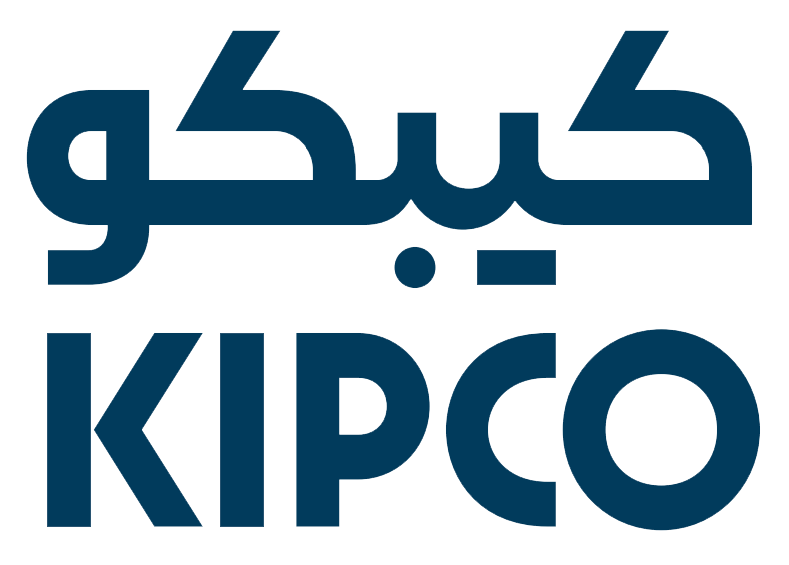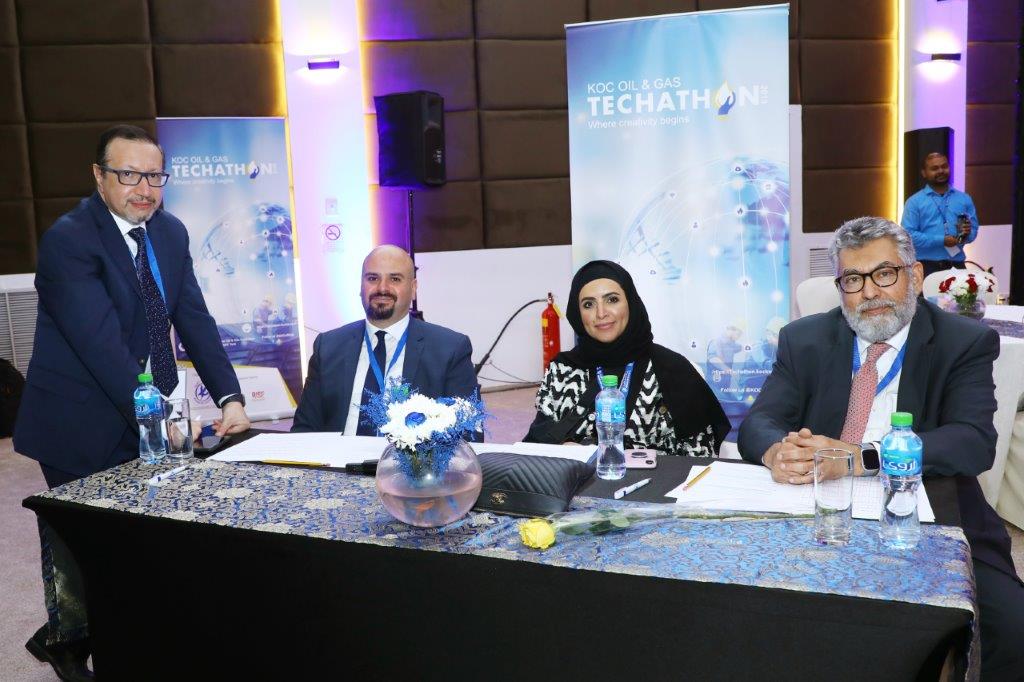Kuwait Oil Company (KOC) successfully concluded the first KOC Oil & Gas Techathon organized in collaboration with its academic partner, the Center for Research in Informatics, Sciences, and Engineering (RISE) at the American University of Kuwait (AUK).
The country-wide technology marathon took place on November 14th-16th and brought together 76 participants of which one third comprised of women. Each of the 12 competing teams was composed of oil & gas professionals including employees of KOC, as well as students and graduates of computer science, petroleum engineering, chemical engineering, geology, graphic design, and business studies, coming from AUK, Kuwait University, and a number of private universities in Kuwait. Over the period of 48 hours, the teams worked to devise solutions for challenges related to the oil & gas sector. The main topics of challenges were oil & gas operations, drilling operations, and HSSE (Health, Safety, Security, and Environment). Throughout the event, subject matter experts (mentors) were guiding the teams and answered their questions; among the mentors was Mr. Mohamed Malek, a digital architect from Microsoft.
The closing ceremony on the evening of November 16th announced 3 winning teams: iLana Team (1st place), A-Team (2nd place), and Cruel Oil Team (3rd place).
iLana Team tackled three challenges related to gas turbine compressor health, pipeline failures, and errors in electric submersible pumps. A-Team proposed a solution for the predictive maintenance of electric submersible pumps, while Cruel Oil Team came up with a solution for the foresting of gas flaring pollutants concentration.
KOC Deputy CEO for Planning and Finance, Bader Al-Attar expressed his admiration of the Techathon and praised the participants on their innovative solutions to the real-world challenges they were assigned; Al-Attar also asserted that KOC is looking forward to hosting another Techathon in the future.
Dr. Rawda Awwad, President of AUK, emphasized on the mutual values and principles shared between both AUK and KOC: “In its mission to enable for its students and broader community discovery and exploration, AUK has found an important collaborative partner: Kuwait Oil Company. Among others, KOC’s values reflect the principles that we as an institution are also trying to uphold: caring for people, partnership, integrity, and innovation. That level of collaboration that you see today—between the private and the public, the individual and the community—is an unnegotiable key-stone. This is how we move forward, and how “we” all can make a difference.”
Dr. Amir Zeid, Dean of the AUK College of Engineering and Applied Sciences (CEAS), praised the partnership between AUK and KOC as well as the diversity of the participants: “We are pleased to be the academic partner with KOC for this event. I am proud to see many AUK students and alumni from multiple disciplines participating in the event. We are looking forward to a long-term partnership with KOC for more events and research initiatives.”
Prior to the winners’ announcements, each team presented and demonstrated their solutions to a judging panel composed of; Dr. Adel Al-Abassi, former Deputy Managing Director of Technology Research & Management at KPC; Ms. Anaam Al-Jenaa, Teamleader of Information Technology Operations at KOC (IT Group); and Mr. Toufic Halabi, Microsoft Regional Energy & Resources Lead. The judges then convened to select the 3 best teams based on specific selection criteria.
The winner, iLana Team, led by AUK alumnus Ali Kelkawi, proposed a solution that consisted of predictive modeling and analysis of gas turbine compressor health, pipeline failures, and errors in electric submersible pumps, which can lead to reductions in financial costs and potential manpower needed to fix these errors. Different machine learning models were built and deployed as part of a web application where users can easily leverage these models using their own datasets, as well as learn more about the process and theory behind the derived models.
“KOC’s first annual Techathon gave students and professionals of different fields the chance to come together and innovate solutions related to the oil & gas sector. I am thrilled to see the rising interest in data science in different sectors in Kuwait, as reflected in some of the challenges tackled during this competition. I am extremely proud of my team’s continuous success and hope to inspire others to become part of such successful events,” expressed Kelkawi.
The second winning team, A-Team, worked on a new method for the analysis of the data on electric submersible pumps (ESP) failures called “Narrow Network.” This method combines a huge amount of data received from 100 ESPs, and it predicts the types of errors and failures along with the overall probability of failures in the future.
The third winning team, Cruel Oil Team, developed a solution that forecasts any emissions resulting from the flaring process. The forecasts are then used to define a clear plan ahead to at least minimize the errors that result from the designs of the flares.



